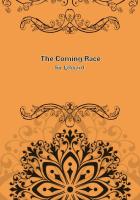Ritual is preserved because it preserves LUCK. Not only among the Romans and the Brahmans, with their endless minute ritual actions, but among such lower races as the Kanekas of New Caledonia, the efficacy of religious functions is destroyed by the slightest accidental infraction of established rules. The same timid conservatism presides over myth, and in each locality the mystery-plays, with their accompanying narratives, preserved inviolate the early forms of legend. Myth and ritual do not admit of being argued about. "C'etait le rite etabli. Ce n'etait pas plus absurde qu'autre chose," says the conservative in M. Renan's piece, defending the mode of appointment of The priest who slew the slayer, And shall himself be slain.
Thus the watchers of the dead in New Caledonia are fed by the sorcerer with a mess at the end of a very long spoon, and should the food miss the mouth, all the ceremonies have to be repeated.
This detail is from Mr. J. J. Atkinson.
Now, if the rites and myths preserved by the timorousness of this same "cowardice towards the supernatural" were originally evolved in the stage of savagery, savage they would remain, as it is impious and dangerous to reform them till the religion which they serve perishes with them. These relics in Greek ritual and faith are very commonly explained as due to Oriental influences, as things borrowed from the dark and bloody superstitions of Asia.
But this attempt to save the native Greek character for "blitheness" and humanity must not be pushed too far. It must be remembered that the cruder and wilder sacrifices and legends of Greece were strictly LOCAL; that they were attached to these ancient temples, old altars, barbarous xoana, or wooden idols, and rough fetish stones, in which Pausanias found the most ancient relics of Hellenic theology. This is a proof of their antiquity and a presumption in favour of their ******* from foreign influence. Most of these things were survivals from that dimly remembered prehistoric age in which the Greeks, not yet gathered into city states, lived in villages or kraals, or pueblos, as we should translate , if we were speaking of African or American tribes. In that stage the early Greeks must have lacked both the civic and the national or Panhellenic sentiment; their political unit was the clan, which, again, answered in part to the totem kindred of America, or Africa, or Australia. In this stagnant condition they could not have made acquaintance with the many creeds of Semitic and other alien peoples on the shores of the Levant. It was later, when Greece had developed the city life of the heroic age, that her adventurous sons came into close contact with Egypt and Phoenicia.
Claus, De Antiq. Form. Dianae, 6,7,16.
As C. O. Muller judiciously remarks: "The scenes of nine-tenths of the Greek myths are laid in PARTICULAR DISTRICTS OF GREECE, and they speak of the primeval inhabitants, of the lineage and adventures of native heroes. They manifest an accurate acquaintance with individual localities, which, at a time when Greece was neither explored by antiquaries, nor did geographical handbooks exist, could be possessed only by the inhabitants of these localities." Muller gives, as examples, myths of bears more or less divine. Scientific Mythology, pp. 14, 15.
Compare Claus, De Dianae Antiquissima Natura, p. 3.
In the colonising time, still later--perhaps from 900 B.C.
downwards--the Greeks, settled on sites whence they had expelled Sidonians or Sicanians, very naturally continued, with modifications, the worship of such gods as they found already in possession. Like the Romans, the Greeks easily recognised their own deities in the analogous members of foreign polytheistic systems. Thus we can allow for alien elements in such gods and goddesses as Zeus Asterios, as Aphrodite of Cyprus or Eryx, or the many-breasted Ephesian Artemis, whose monstrous form had its exact analogue among the Aztecs in that many-breasted goddess of the maguey plant whence beer was made. To discern and disengage the borrowed factors in the Hellenic Olympus by analysis of divine names is a task to which comparative philology may lawfully devote herself; but we cannot so readily explain by presumed borrowing from without the rude xoana of the ancient local temples, the wild myths of the local legends, the sacra which were the exclusive property of old-world families, Butadae or Eumolpidae. These are clearly survivals from a stage of Greek culture earlier than the city state, earlier than the heroic age of the roving Greek Vikings, and far earlier than the Greek colonies. They belong to that conservative and immobile period when the tribe or clan, settled in its scattered kraals, lived a life of agriculture, hunting and cattle-breeding, engaged in no larger or more adventurous wars than border feuds about women or cattle. Such wars were on a humbler scale than even Nestor's old fights with the Epeians; such adventures did not bring the tribe into contact with alien religions. If Sidonian merchantmen chanced to establish a factory near a tribe in this condition, their religion was not likely to make many proselytes.
These reasons for believing that most of the wilder element in Greek ritual and myth was native may be briefly recapitulated, as they are often overlooked. The more strange and savage features meet us in LOCAL tales and practices, often in remote upland temples and chapels. There they had survived from the society of the VILLAGE status, before villages were gathered into CITIES, before Greeks had taken to a roving life, or made much acquaintance with distant and maritime peoples.














